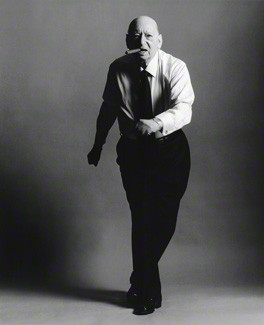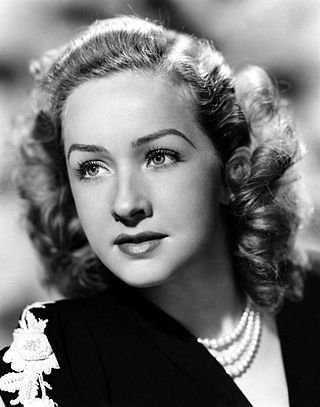Related Research Articles

ATV Network Limited, originally Associated TeleVision (ATV), was a British broadcaster, part of the ITV network. It provided a service to London at weekends from 1955 to 1968, to the Midlands on weekdays from 1956 to 1968, and subsequently to the Midlands all week from 1968 to 1982. It was one of the "Big Four" until 1968, and the "Big Five" after 1968, that between them produced the majority of ITV networked programmes. In 1982, ATV was restructured and rebranded as Central Independent Television, under which name it continued to provide the service for the Midlands.

Lew Grade, Baron Grade, was a Russian-born British media proprietor and impresario. Originally a dancer, and later a talent agent, Grade's interest in television production began in 1954 when he founded the Incorporated Television Company to distribute programmes, and following the success of The Adventures of Robin Hood decided to focus on bringing them to the American market. Grade had some success in this field with such series as Gerry Anderson's many Supermarionation series such as Thunderbirds, Patrick McGoohan's The Prisoner, and Jim Henson's The Muppet Show. Later, Grade invested in feature film production, but several expensive box-office failures caused him to lose control of ITC, and ultimately resulted in the disestablishment of ATV after it lost its ITV franchise.

Rankin/Bass Animated Entertainment was an American production company located in New York City. It was known for its seasonal television specials, usually done in stop motion animation. Rankin/Bass's stop-motion productions are recognizable by their visual style of doll-like characters with spheroid body parts and ubiquitous powdery snow using an animation technique called Animagic.

PolyGram Filmed Entertainment was a film production company founded in 1975 as an American film studio, which became a European competitor to Hollywood within two decades, but was eventually sold to Seagram in 1998 and was folded into Universal Pictures a year later. Among its most successful and well known films were The Deep (1977), Midnight Express (1978), An American Werewolf in London (1981), Flashdance (1983), Batman (1989), Four Weddings and a Funeral (1994), Trainspotting (1996), Dead Man Walking (1995), The Big Lebowski (1998), Fargo (1996), The Usual Suspects (1995), The Game (1997), Candyman (1992) and Notting Hill (1999).

Bonita Gloria Granville Wrather was an American actress and producer.
John Devereaux Wrather Jr., was an entrepreneur and petroleum businessman who became a television producer and later diversified by investing in broadcast stations and resort properties. He is best known for producing The Lone Ranger, Sergeant Preston of the Yukon, and Lassie television series in the 1950s as well as marrying actress Bonita Granville. His daughter, Linda Wrather appeared in one of the last episodes of the Lone Ranger, The Angel and the Outlaw.

Interscope Communications, Inc. was a motion picture production company founded in 1979 by Ted Field. It soon became a division of PolyGram Filmed Entertainment.

The Incorporated Television Company (ITC), or ITC Entertainment as it was referred to in the United States, was a British company involved in production and distribution of television programmes.
NBCUniversal Syndication Studios, formerly known as NBCUniversal Television Distribution, Universal Domestic Television, Studios USA Television Distribution and MCA TV is the television syndication division of NBCUniversal, a division of Comcast, in the United States. Its predecessors include NBC Enterprises, Universal Television Distribution, Multimedia Entertainment, PolyGram Television, and Sky Vision. At some point in its history, it was also known as "NBCUniversal Television & New Media Distribution" and "NBC Universal Television and New Media Distribution.” This unit is possibly the parent for the similarly named "NBCUniversal Domestic Television Distribution" unit.
United Artists Television (UATV) was an American television production/distribution studio of United Artists Corporation that was formed on January 1, 1958. The company is remembered for producing series such as This Man Dawson, World of Giants, Stoney Burke, The Outer Limits, Gilligan's Island, My Mother the Car, The Fugitive, The Rat Patrol, thirtysomething, The New Phil Silvers Show, The Patty Duke Show and The Pink Panther Show. In September 2014, the studio briefly returned to full-time TV production under the new management of United Artists Media Group (UAMG), led in part by husband and wife producers Mark Burnett and Roma Downey. With its folding back into MGM Television, UATV was temporarily dormant until 2020 when MGM Television was reincorporated.
Cannonball is a British/Canadian adventure drama series starring Paul Birch and William Campbell, and aired on CBC Television in Canada, ABC Weekend TV in the United Kingdom, and in syndication in the United States. Produced by Normandie Productions and ITC Entertainment, the series' interiors were filmed at Canadian Film Industries Limited, a studio in Canada. Exteriors were shot in and around Toronto.

Interpol Calling is a British television crime drama series produced by Rank Organisation and Jack Wrather Productions for ITC Entertainment. The programme, which ran for one series of 39 half-hour monochrome episodes 1959–1960, followed the adventures of Interpol policemen Duval and Mornay as they fought against international drug-running, homicide, robbery and forgery.
New York Confidential is a British-American crime drama series that aired from 1958 to 1959.

Associated British Picture Corporation (ABPC), originally British International Pictures (BIP), was a British film production, distribution and exhibition company active from 1927 until 1970 when it was absorbed into EMI. ABPC also owned approximately 500 cinemas in Britain by 1943, and in the 1950s and 60s owned a station on the ITV television network. The studio was partly owned by Warner Bros. from about 1940 until 1969; the American company also owned a stake in ABPC's distribution arm, Warner-Pathé, from 1958. It formed one half of a vertically integrated film industry duopoly in Britain with the Rank Organisation.
Nestor Montague "Monty" Berman was a British cinematographer and film and television producer.

Fury is an American Western television series that aired on NBC from 1955 to 1960. It stars Peter Graves as Jim Newton, who operates the Broken Wheel Ranch in California; Bobby Diamond as Jim's adopted son, Joey Clark Newton, and William Fawcett as ranch hand Pete Wilkey. Roger Mobley co-starred in the two final seasons as Homer "Packy" Lambert, a friend of Joey's.

FilmFair was a British production company and animation studio that produced children's television series, animated television series, educational films, and television advertisements. The company made numerous stop motion films using puppets, clay animation, and cutout animation.
Sidney Henry Cole was a British film and television producer. Earlier in his career he worked as a film editor.
The Best of the Post is a syndicated anthology drama television series adapted from stories published in The Saturday Evening Post magazine. It was produced by John J. Enders and hosted by John Conte. A total of 26 half-hour episodes, all in color, aired from 1960 to 1961 with stars that included Marie Windsor, Pat O'Brien, Charles Coburn, Peter Lorre, Bonita Granville, Buddy Ebsen, and Vincent Price.

Jerry Leider is an American producer of both feature films and television programs. He has also worked as a senior executive at studios, television networks and talent agencies.
References
- ↑ Fury fansite accessed 9 May 2006
- ↑ IMDb entry for TPA, accessed 9 May 2006